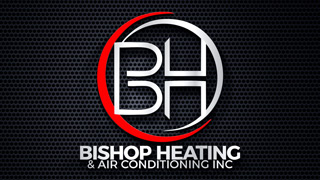
We spend a good majority of our time indoors. In fact, the Environmental Protection Agency (EPA) has determined being inside comprises 90% of our time. However, the EPA also has determined your indoor air can be three to five times dirtier than outdoors.
That’s since our houses are securely sealed to enhance energy efficiency. While this is great for your utility costs, it’s not so fantastic if you’re among the 40% of the population with respiratory allergies.
When outdoor ventilation is limited, pollutants like dust and volatile organic compounds (VOCs) may get trapped. Consequently, these pollutants may irritate your allergies.
You can enhance your indoor air quality with clean air and regular cleaning and vacuuming. But if you’re still having problems with symptoms during the time you’re at your house, an air purifier might be able to help.
While it can’t eliminate pollutants that have settled on your furniture or carpeting, it might help purify the air traveling around your residence.
And air purification has also been scientifically verified to help reduce some allergic symptoms, according to the American College of Allergy, Asthma and Immunology. It can also be helpful if you or a loved one has a lung condition, including emphysema or COPD.
There are two options, a portable air purifier or a whole-home air purifier. We’ll go over the distinctions so you can learn what’s appropriate for your house.
Whole-House Air Purifier vs. Portable Air Purifiers
A portable air purifier is for a single room. A whole-house air purifier works with your heating and cooling system to purify your complete house. Some kinds can purify on their own when your HVAC system isn’t running.
What’s the Best Air Purifier for Allergies?
Look for a purifier with a High Efficiency Particulate Air (HEPA) filter. HEPA filters are placed in hospitals and deliver the best filtration you can get, as they catch 99.97% of particles in the air.
HEPA filters are even more beneficial when used with an ultraviolet (UV) germicidal light. This dynamic blend can wipe out dust, dander, pollen and mold, all of which are common allergens. For the greatest in air purification, consider a unit that also has a carbon-based filter to eliminate household odors.
Avoid buying an air purifier that creates ozone, which is the top element in smog. The EPA cautions ozone may aggravate respiratory troubles, even when released at small settings.
The Allergy and Asthma Foundation of America has created a listing of questions to ask when purchasing an air purifier.
- What can this purifier remove from the air? What doesn’t it extract?
- What’s its clean air delivery rate? (A bigger number means air will be cleaned faster.)
- How regularly does the filter or UV bulb need to be replaced]? Can I finish that by myself?
- How much do replacement filters or bulbs cost?
How to Lessen Seasonal Allergy Symptoms
Want to have the {top|most excellent|best] results from your new air purification equipment? The Mayo Clinic recommends doing other measures to limit your exposure to things that can trigger seasonal allergies.
- Stay indoors and keep windows and doors sealed when pollen counts are elevated.
- Have other household members cut the lawn or pull weeds, since these jobs can irritate symptoms. If you have to do this work yourself, consider trying a pollen mask. You should also bathe right away and put on new clothes once you’re done.
- Avoid stringing up laundry outside.
- Turn on air conditioning while indoors or while driving. Consider installing a high efficiency air filter in your residence’s heating and cooling equipment.
- Balance your residence’s humidity levels with a whole-house dehumidifier.
- Hardwood, tile or linoleum are the suggested flooring materials for decreasing indoor allergens. If your home has carpet, install a HEPA filter on your vacuum cleaner.
Let Our Specialists Take Care of Your Indoor Air Quality Requirements
Want to move forward with adding a whole-house air purifier? Give our professionals a call at 760-938-9833 or contact us online to schedule an appointment. We’ll help you find the best unit for your residence and budget.
